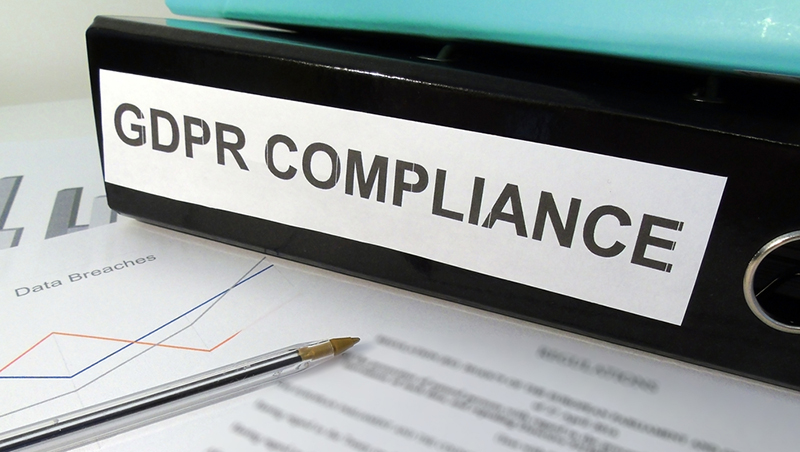Secure cloud storage for business: What you should look for in a provider
Find the most secure cloud storage for your business

Dependable and secure cloud storage for business is paramount for any data-driven organisation, especially in sensitive industries like healthcare, financial services, education, transportation, and manufacturing.
Before you choose the best cloud storage provider for your needs, it's essential to understand the basics of secure cloud storage for business, so you can make an informed and cost-efficient choice.
In this article, we discuss how secure cloud storage for business works, including its essential and cutting-edge security features; region-specific compliance regulations; and the importance of multi-layered security infrastructure. Finally, we provide some recommendations on security-focused cloud storage.
What is secure cloud storage for business?
Keeping your business’s data secure can be cumbersome and expensive, which is where the best cloud storage for business can be of service.
Companies in this field, especially those offering secure cloud storage for business, specialise in storing their clients' data across multiple server locations worldwide. They take responsibility for maintaining their servers, backing up and safeguarding clients' valuable data with state-of-the-art encryption technology, and guaranteeing access to it at all times.
A great cloud storage service takes care of all aspects of data security, and ensures sufficient data transfer speeds, reliable cloud uptime, and excellent customer service, enabling clients to focus on their core business activities.
Data should be encrypted in transit and at rest

Encryption is the process of encoding or scrambling data so that only an authorised party can unscramble and access it. Encryption can be broadly classified into two categories—in transit and at rest. The former applies to securing your data while it's being transferred from your computer to the cloud server, and the latter refers to protecting your files once they're in the cloud.
Sign up today and you will receive a free copy of our Future Focus 2025 report - the leading guidance on AI, cybersecurity and other IT challenges as per 700+ senior executives
For in-transit security, end-to-end encryption (E2EE) is considered a must-have. It is a method of securing information between two end systems or devices, to ensure that no third party can access your data during transit, keeping it confidential and safe.
But if one end is a cloud service provider where the data is meant to be stored, at-rest encryption is also required once the data reaches the server location.
For at-rest encryption, 256-bit Advanced Encryption Standard (AES) technology is considered the industry standard. AES encryption uses a secret key to protect your data. You can think of a key like a password. However, whereas a password phrase is human-generated and therefore more easily remembered, an encryption key is machine-generated, random, and may contain special characters, making it almost impossible to crack.
The only easy way for an unauthorised individual to access your data when it's encrypted with 256-bit (AES) technology is to get their hands on your encryption key. A disadvantage of basic AES technology is that your encryption key is also stored on the cloud servers. If a hacker breaches your cloud service provider's security apparatus, they may be able to use this secret key to access your files.
Zero-knowledge encryption for extra security
Zero-knowledge encryption means that no one other than you has the keys to unlock your files. Once an encryption key is created, no copies of it are stored anywhere else. The cloud service that hosts your files will have no means of decrypting them without your consent. And even if your files are breached by criminals or government agencies armed with a warrant, they will only get access to encrypted and unreadable data.
Services like Sync.com include zero-knowledge encryption as part of their regular plans, and pCloud, another security-focused hosting provider, offers it as a standard feature of its pCloud Crypto service for businesses.
You might think this makes zero-knowledge encryption a must-have in all cases, but there are significant trade-offs to consider. If your files are encrypted on the cloud, they can't be accessed without decryption. So any media files, including photos and videos, cannot be previewed or opened directly from the cloud.
Another downside of zero-knowledge encryption involves a common scenario—losing your password. If you lose your encryption key, there is no way to recover your files. This is, of course, a feature and not a bug, so it's essential to carefully consider your security requirements rather than choosing a one-size-fits-all solution.
Compliance regulations are your friends

Regulations provide an invaluable safety net for data owners and end-users. When researching secure cloud storage services, it's essential to understand which regulatory framework applies to them.
Although compliance regulations vary by country or region, a strong framework may require that each file and folder has an audit trail that shows the dates on which files were uploaded and modified, user permissions, and operations performed, including copy and delete. Such detailed record-keeping is vital for security-conscious businesses, and can prevent the loss of millions of dollars due to negligence, criminal activity, or unforeseen events.
For example, Sync.com operates out of Canada, a country with powerful data protection laws. Canadian businesses must comply with the Canadian Personal Information Protection and Electronic Documents Act (PIPEDA). Another well-known regulatory framework is the EU's Global Data Protection Regulation (GDPR), which applies to any cloud hosting service with server locations in the EU.
If your chosen cloud hosting provider is located in a country or region with robust compliance regulations, you can rest easy knowing that these laws are helping to protect your data.
Security measures must be holistic
Data loss and breaches can happen for many reasons, ranging from natural disasters to hacker attacks. A handful of security measures are not enough to protect against all eventualities. For example, if criminals manage to get a hold of your encrypted files, they may not be able to read them, but they could still hold them for ransom.
That's why many providers employ a multi-layered security infrastructure for every contingency. These measures may consist of firewalls, cutting-edge encryption, multi-factor authentication (where users are required to present two or more forms of identification to access a service, e.g., a password and a code sent to their phone), and the ability to remotely wipe a local device in case of loss or theft.
Some backup service providers like Storj split your files into multiple pieces after encryption and distribute them over a global server network, making it virtually impossible for an unauthorised entity to access your data. Files are reconstituted when you need them, and unlocked using an encryption key accessible only to you.
Other hosting services like Egnyte pride themselves on physically protecting your data, with measures such as a state-of-the-art intrusion detection system, biometric access controls, surveillance cameras, and natural disaster-resistant data centres.
Conclusion
Cloud service providers like Sync.com, pCloud, and Storj focus heavily on data security, and you may be assured of a solid security setup if you go with one of these companies.
However, with constantly evolving technologies and changes in compliance laws, it would be prudent to consult with data security and compliance experts and read the fine print before transferring your valuable data and dollars to any cloud service. When it comes to data security, it always makes sense to measure seven times and cut once.
Further reading on cloud storage
If you're looking for cloud storage but don't have much of a budget, make sure you take a look at our guide to the best free cloud storage, though we don't recommend this for businesses.
Wondering what might be best for your business when it comes to cloud and local storage? Our comparison pitting cloud storage vs local storage aims to explore the similarities, differences, advantages and disadvantages of both types.
Karan Kaul is a freelance writer who’s been published by CNBC, TechRadar, Urban Institute, ITProPortal, RealtyTimes, Aging Today, and Homegrown.
-
 The open source ecosystem is booming thanks to AI, but hackers are taking advantage
The open source ecosystem is booming thanks to AI, but hackers are taking advantageNews Analysis by Sonatype found that AI is giving attackers new opportunities to target victims
-
 Westcon-Comstor enters Balkan market with REAL Security acquisition
Westcon-Comstor enters Balkan market with REAL Security acquisitionNews The acquisition gives the distribution giant immediate access to an established partner ecosystem spanning eight Balkan markets